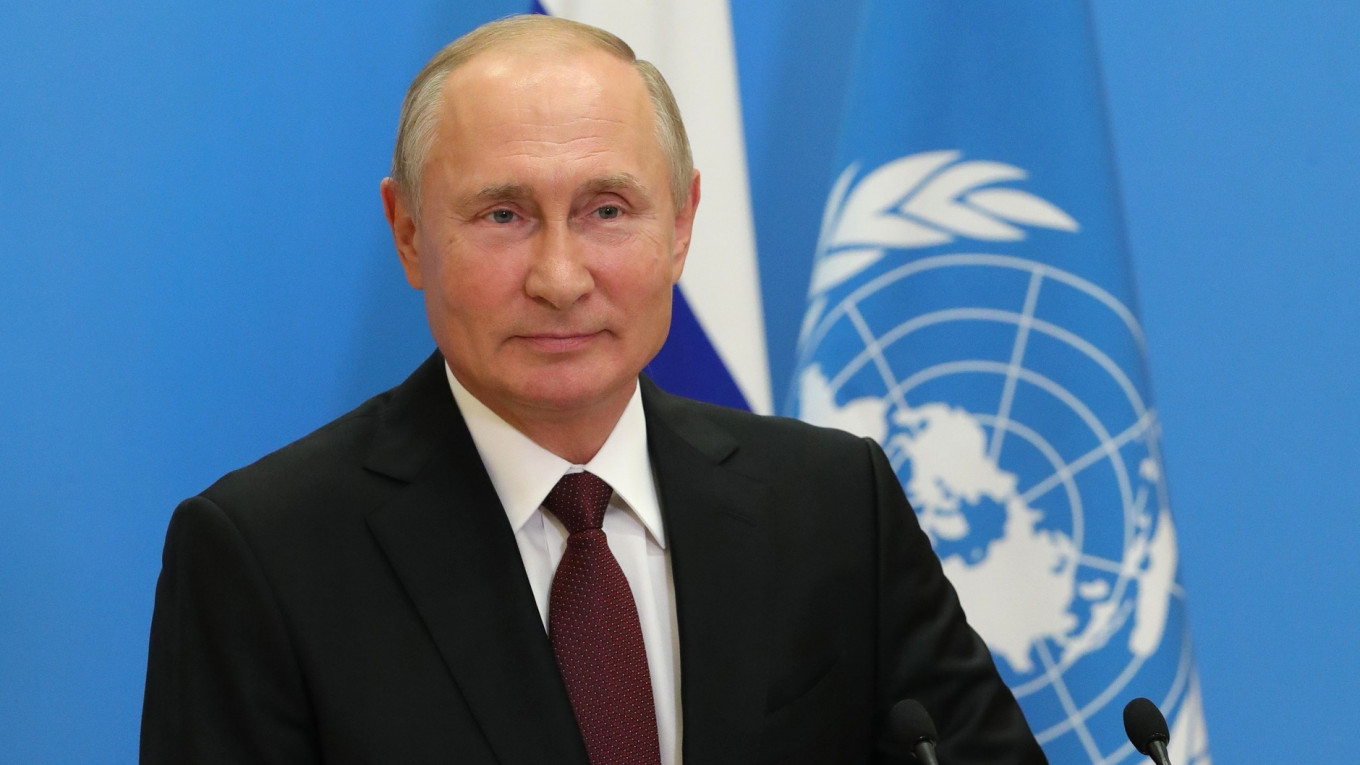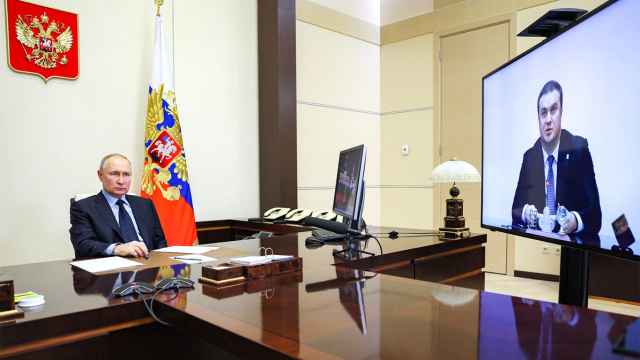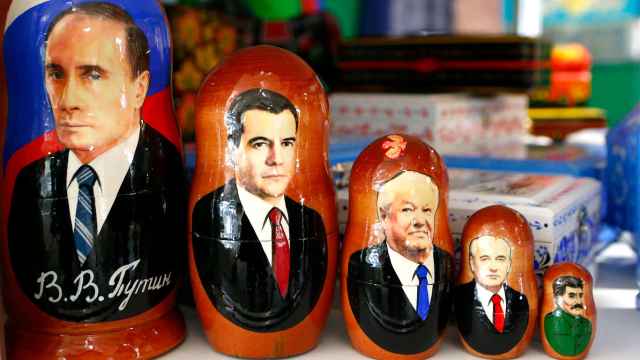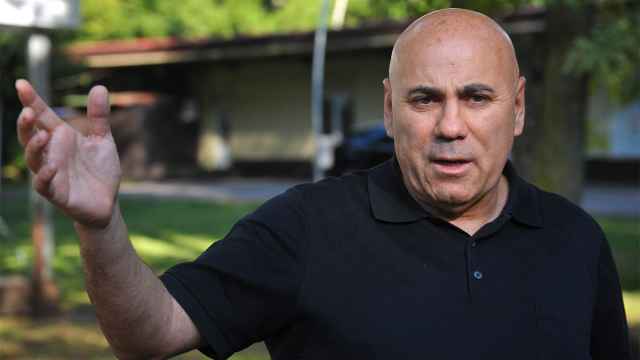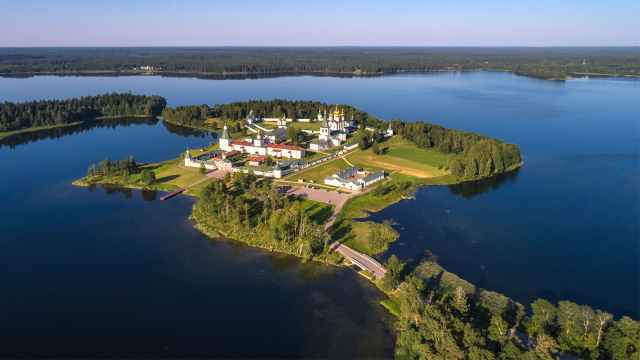A speech at the UN General Assembly is a little like a national leader’s talent show, a chance for them to strike a stance, play a role, and set the tone. Some strike for a statesmanlike mien, others reach for the fireworks. Vladimir Putin came across like the bankrupt trying to reassure his creditors all was well.
Speaking virtually to the 75th Session of the UNGA, Putin chose not only to present himself and his Russia as the strong and stable grownups of the international family, but also mask some of the signs of national decline.
It was inevitable — and appropriate — that on the 75th anniversary not only of the formation of the UN but also the end of the Second World War, that he would touch on the latter.
Nonetheless, it is perhaps a mark of insecurity, that he had to return to the history wars he has been waging with many in the West over the morality of the Molotov-Ribbentrop Pact and Stalin’s role in the slide to war. There was a jab against the “politicized attempts arbitrarily to interpret the causes, course and results of World War II based not on facts, but on speculation.”
He tried to give it a wider spin, that “this is not just vindictiveness and a crime against the memory of the fighters against Nazism. This is a direct, destructive blow to the very foundations of the post-war world order,” at a time when it was being buffeted by regional conflicts, terrorism, criminality and a decaying arms control order.
A pillar of the world
After all, it is a mistake to believe, as some do, that Putin is an enemy of the structures of the international order.
o be sure, he will happy ignore them when there is a peninsula to annex or a critic to poison. However, for the rump of a former superpower with grandiose expectations, they continue to provide status and leverage.
He was certainly very clear that he saw no grounds for any real reform of the Security Council. While he accepted that it “should more fully take into account the interests of all countries, of the full diversity of their positions,” nonetheless it could not work “without preserving the veto right of permanent members of the Security Council.”
In other words, Russia and the rest of the P5 would promise to listen to everyone else more — but not actually give up their power.
Indeed, Putin has proposed convening a summit of these “Big Five” nations.
At a time when Russia is still something of an international pariah, at least in Western eyes, with considerable chutzpah he has suggested that it could “reaffirm the key principles of conduct in international affairs” and “to develop ways of effectively solving the most pressing problems of our time.”
It may well happen at some point, but it is unlikely that it will be quite the event he hopes, especially as Moscow continues to back an increasingly illegitimate regime in Belarus, stonewalls on Alexei Navalny’s poisoning and faces new rounds of sanctions.
Arguably, though, this doesn’t matter. The point is not the outcome, but the symbolism. A gathering of the world’s great powers, including and convened by Russia, suggesting that Moscow is still one of the poles of the world, and that geopolitics remains a matter discussed by all, but decided by the few.
Constraining the hegemon(s)
But not just America. After all, Russia’s complaint is often not that the UN and other such instruments of the wider international order are too powerful, but that they have been too weak in restraining the main disruptor in the world: not North Korea or Iran, but the United States.
Putin’s continued focus on arms control and the like can be read not just on their own merits but also as a reminder that in one area, that of nuclear forces, Russia is still a superpower.
And a frustration that Donald Trump’s America seems not to recognize that, to not treat it the way it has been accustomed.
After all, Moscow’s bugbear has always been not just losing its status, but losing it to a “unipolar” — in other words, U.S.-dominated — world order.
Defending Russia’s interests is also a matter of ensuring that Washington cannot just do what it wants. This was likely behind his warning of the need to ensure the UN remained able to prevent “unilateral actions” that could lead to military confrontations, and “avoid decisions that are categorically unacceptable to others, operating within the framework of international law, and not… the grey zone of arbitrariness and illegitimacy.”
He is still keen to emphasize this and other traditional talking points. The coronavirus pandemic, for example, is mobilized for a new opportunity to call for “freeing world trade from barriers, bans, restriction and,” — of course — “illegitimate sanctions,” now presented as a vital means to “help restore global growth and reduce unemployment.”
Yet Putin has to accept that the world is no longer unipolar. He may not mention China by name, but it hangs over at least part of his speech. It is an ally, but also a challenger, and Moscow cannot help but fear being squeezed or, perhaps even more galling, overlooked between Beijing and Washington.
Since 2016, he has been advocating a Greater Eurasian Partnership able to create an integrated economic space from the Atlantic to the Pacific, and once again here advanced the notion of such an “integration of integrations” that could bring together “all countries of Asia and Europe without exception.”
Tellingly, he stressed that the notion “is purely pragmatic and is now becoming even more relevant.” In other words, this is not about values or hegemony, but simply bringing down barriers. Who gets to erect the barriers that matter, and break the ones in their way? The stronger countries.
Clinging to the protected status of P5 membership, pretending that he was not considered a problem rather than a partner by many of the nations of the world, and trying to ensure Russia was not trapped between China and the West.
Who knows how far he is consciously aware of it, but at his UN speech, while presenting Russia as a world leader in everything from vaccine research to controlling cyberweapons, Putin was actually rehearsing the defense of a nation in decline.
A Message from The Moscow Times:
Dear readers,
We are facing unprecedented challenges. Russia's Prosecutor General's Office has designated The Moscow Times as an "undesirable" organization, criminalizing our work and putting our staff at risk of prosecution. This follows our earlier unjust labeling as a "foreign agent."
These actions are direct attempts to silence independent journalism in Russia. The authorities claim our work "discredits the decisions of the Russian leadership." We see things differently: we strive to provide accurate, unbiased reporting on Russia.
We, the journalists of The Moscow Times, refuse to be silenced. But to continue our work, we need your help.
Your support, no matter how small, makes a world of difference. If you can, please support us monthly starting from just $2. It's quick to set up, and every contribution makes a significant impact.
By supporting The Moscow Times, you're defending open, independent journalism in the face of repression. Thank you for standing with us.
Remind me later.



